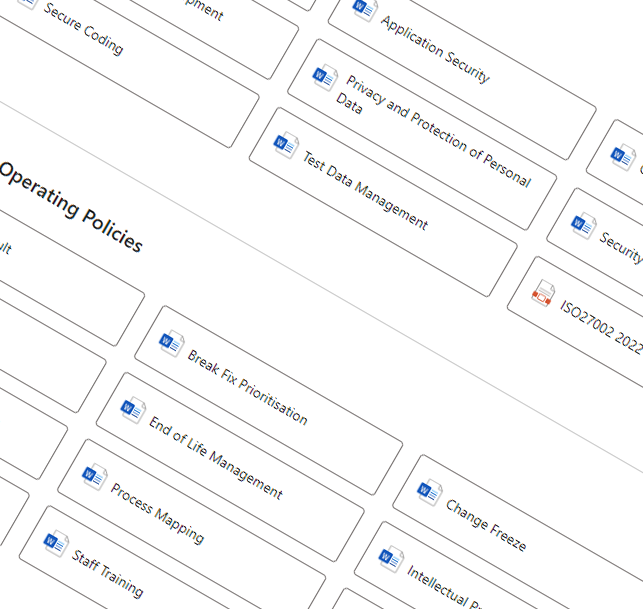Maintaining strong governance is essential for the success of our Robotic Process Automation (RPA) program.
Firstly, these governance processes and our ISO 27001 standard provide a solid framework for managing information security. In the realm of IA/RPA, where we handle sensitive data and critical processes, ensuring information security is paramount. The programme is also compliant with DCB0160 and DPIA regulations.
Adhering to these standards helps establish robust data security measures, safeguarding against breaches and unauthorised access. This is not only vital for patient safety but also crucial for meeting regulatory compliance requirements.
Secondly, ISO 27001 promotes a culture of continuous improvement and risk management, which is particularly important in the ever-evolving landscape of automation. Regular assessments and audits allow us to proactively address security concerns, enhancing the resilience of our program against emerging threats.
Ensuring Security, Governance, and Compliance through Structured Frameworks and Standards.
Security, Governance, and Compliance
While ISO 27001 certification isn’t mandatory for strong RPA governance, it offers significant advantages. It provides a structured approach to managing information security, helping protect sensitive data and ensuring regulatory compliance.
Although good governance can be achieved through other frameworks, ISO 27001 enhances stakeholder trust and reinforces a long-term commitment to high security standards. To meet our governance needs, we’ve established four key areas: ISO 27001-aligned policies for software development controls, Standard Operating Policies for Application Lifecycle Management, Gateway Documents for access control requirements, and supporting materials outlining responsibilities for both our team and stakeholders.
Our project and process design also draw on PRINCE2, Agile, and Lean Six Sigma, ensuring efficient and structured delivery. ISO 27001 complements these by promoting continuous improvement and effective risk management through regular audits and assessments. This certification builds confidence among stakeholders, partners, and patients, supporting the sustainability of our RPA efforts. We also align with NHS Digital Standards, Clinical Safety Standards, the IG Toolkit, and NICE Guidelines.
Security and governance are embedded in our Secure Development Lifecycle, which includes compliance checks, security training, and awareness initiatives. Regular audits, peer and code reviews, and training on secure development practices ensure adherence to best practices and mitigate risks.

